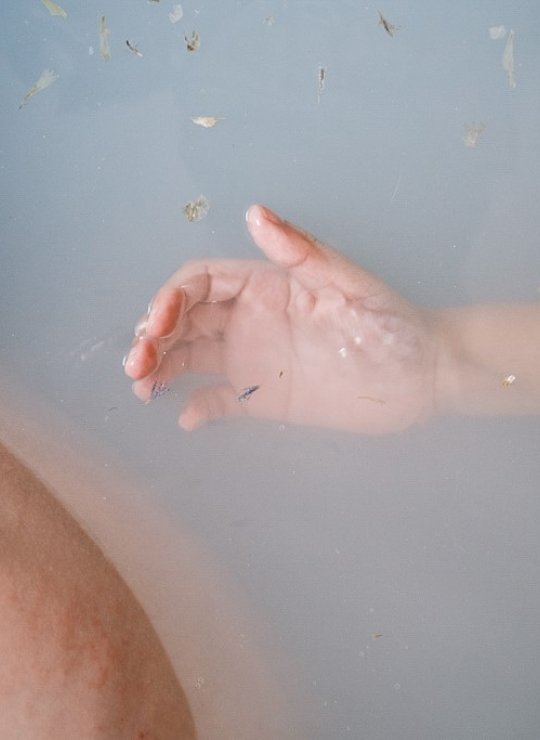
Photography MA (Online)
Become an accomplished and innovative image maker.
Course overview
Push your practice in bold and experimental directions on Falmouth’s online Photography master’s course. Supported by award-winning lecturers and working with diverse peers from across the globe, you will enhance your critical thinking and learn how to make photographic work that explores and communicates challenging themes and ideas.
Throughout the course you will embrace the myriad possibilities within contemporary photography and visual culture, making work that is critically informed and compelling. With a strong focus on professional practice, ethics and sustainable development, you will refine your creative voice and learn how to engage with new audiences and markets.
By the time you graduate, you’ll be comfortable embracing new methodologies, and be equipped with the skills to take your photographic practice to the highest levels of the creative industries and beyond.
Why study this course at Falmouth?
- Join Falmouth’s renowned Institute of Photography from your own location on an established course designed specifically for online study
- Collaborate on industry-standard briefs with a global community of creative practitioners
- Develop skills required to excel professionally, along with the research abilities and theoretical approaches to underpin your work
- Expand your learning and your professional network at our optional in-person events
Top image credit: student work by Charlotte Squire
Start dates: January / May / September
(Three intakes per year)

Interested in studying this Online MA? Join our virtual masterclass on 23 April.
Apply NowCourse details
On this dynamic online Photography master’s, you will create photographic bodies of work that interrogate the world around you with increasing sophistication and critical depth. Supported by industry-active lecturers, you will refine your interests as a practitioner through working on a series of projects, strengthening your technical and visual skills whilst learning more about your subject specialism and developing your own, independent critical perspective.
The four taught modules allow you to interrogate your practice from distinct angles, expanding your knowledge and skills and encouraging you to experiment and take creative risks with your photography. Culminating in a Final Major Project, you will learn how to express your creative identity with confidence and purpose.
Modules
The modules have been specifically designed to be studied in a non-linear order, with the order in which you’ll study the modules depending on when you begin the course.
MA
You will need to complete four 30-credit modules and one 60-credit Major Project (180 credits in total). All modules on the course are compulsory and must be passed in order to complete the award.
From module information to course aims and assessment criteria, discover the full course details for the MA.
PGDip
You will need to complete four 30-credit modules (120 credits in total), and will not complete a Major Project.
From module information to course aims and assessment criteria, discover the full course details for the PGDip.
Module details
This module enables you to locate your practice within the broad contexts of professional contemporary photography.
You will consider the importance of research in both academic and industry contexts, and critically reflect on core themes in contemporary visual culture.
Through discursive activities with staff and peers, as well as self-directed research and personal reflection, you will analyse your practice in relation to specific themes and articulate your practical and conceptual intentions as an image-maker.
(30 credits)
You will be introduced to the themes and debates that are fundamental to the study and consumption of imagery and will increase your understanding of how contemporary practice is enriched through critical and theoretical contextualisation.
You will consider your own practice in relation to historical, philosophical, and ethical perspectives around visual culture, helping you develop an informed and sophisticated photographic practice.
(30 credits)
This module considers the myriad ways in which photography can be presented, and how its form influences how it is received and understood by audiences.
You will explore the many creative strategies involved in the production, resolution, and publication of photographic work, and consider the possibility of interdisciplinary approaches in the making and presentation of your own creative output. Alongside this you’ll consider how your practice and research connects with the broader social, political and ecological landscape, and begin to engage new audiences with your work.
As you study, you’ll devise strategies and workflows that are conscious of material consumption and work towards professional, and ecological and environmental sustainability.
(30 credits)
This module strives to increase your understanding and appreciation of the roles, relationships, and responsibilities that can play a major part in progressing and sustaining your creative practice.
As part of this, you will be encouraged to undertake commissions and work placements during this module, and to devise or engage in photography and visual arts initiatives relevant to your work.
You’ll also have the opportunity to collaborate on a live brief with a small group of peers. These briefs will be set by clients and allow you to gain experience with real industry challenges.
(30 credits)
This module provides you with the chance to produce a critically and professionally informed research project and deliver it to a public audience.
You will submit a proposal outlining a scheme of work and the critical contexts surrounding your project. You’ll then work continuously on the module over the course of two study blocks, working closely with your peers and supported by your supervisor.
The project will be your opportunity to demonstrate increasing autonomy in respect of your research capabilities.
You will also continue to benefit from the programme’s ongoing series of guest lectures by leading contemporary practitioners and industry experts.
(60 credits)
As part of our process of continuous improvement, we routinely review course content to ensure that all our students benefit from a high-quality and rewarding academic experience. As such, there may be some changes made to your course which are not immediately reflected in the content displayed on our website. Any students affected will be informed of any changes made directly.
This course is for you if...
1. You already have some photographic skills and confidence in some areas of practice.
2. You want to learn how to use photography to explore complex ideas, subject and tell stories more effectively.
3. You have professional experience with photography and/or the creative industries, or can demonstrate a commitment to photography and visual culture.
4. You want to learn from others, challenge yourself, and are ready to be pushed out of your creative comfort zone.

Got questions? Chat to Claire, your Course Advisor
Get in touchOur students and graduates

"The course was life-changing to my artistic practice and is absolutely responsible for helping me find my artist voice to tell my story."
Jacy Wilkes, graduate

"The MA allowed me to develop work that I’m keen to share and gave me the confidence to pursue professional opportunities."
Chris Finnegan, graduate
Stories from our community

Image: Jennifer Forward-Hayter
Course Leader and graduate curate photography symposium at Photo|Frome
14 April 2025
Jesse Alexander, Course Leader of Photography MA (Online), and Phil Hill, a graduate of the same pro...
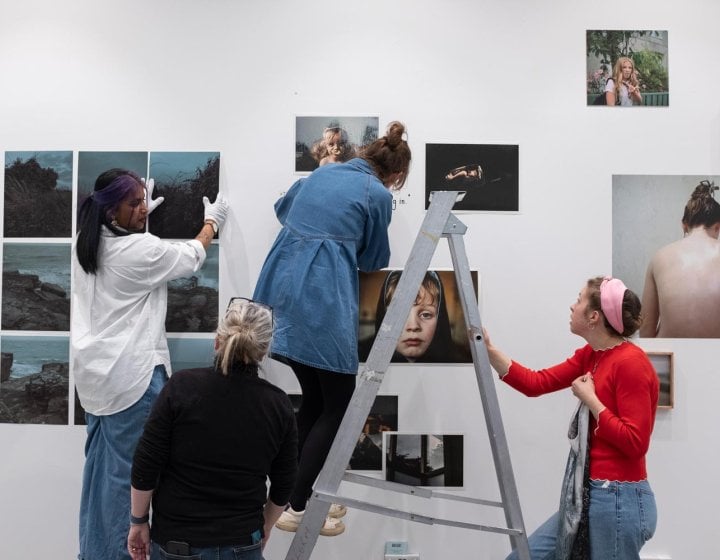
Image by Sylwia Ciszewska-Peciak
Photography graduate Dawn Rodgers exhibits at FORMAT Festival
11 April 2025
Dawn Rodgers has recently showcased her work as part of the renowned East Meets West Masterclass Pro...
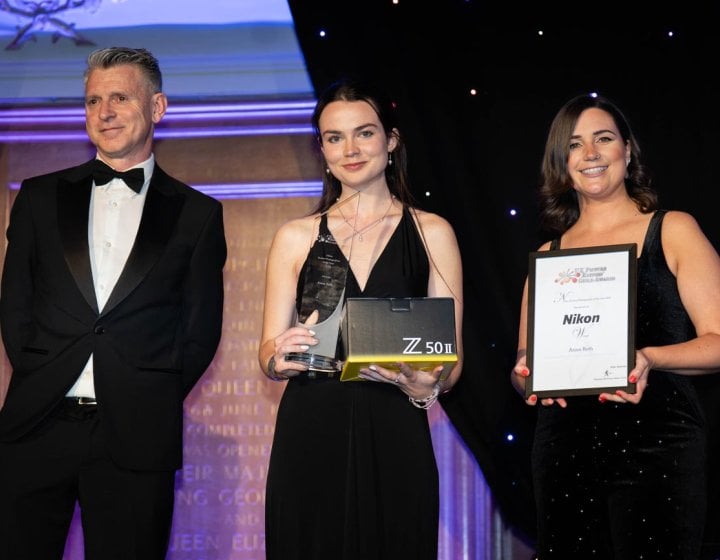
Falmouth Student Anna Roth Wins Nikon Student Photographer of the Year
08 April 2025
Third-year Press & Editorial Photography student Anna Roth has been named Nikon Student Photographer...

Jemima Olchawski, CEO of The Fawcett Society, Philosophy, Politics and Economics 2002-2005. ©PhilippaJames
Philippa James’ latest commission honours 50 years of women at Jesus College, Oxford
03 April 2025
Photography graduate Philippa James has create a portrait series celebrating 50 years of coeducation...
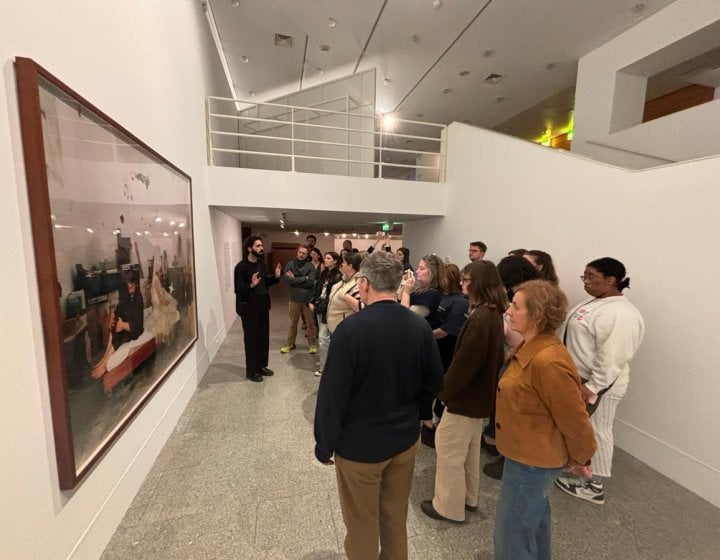
Photography students gather in Lisbon
27 March 2025
Students from across our Photography courses convened in Lisbon for an inspiring and culturally imme...
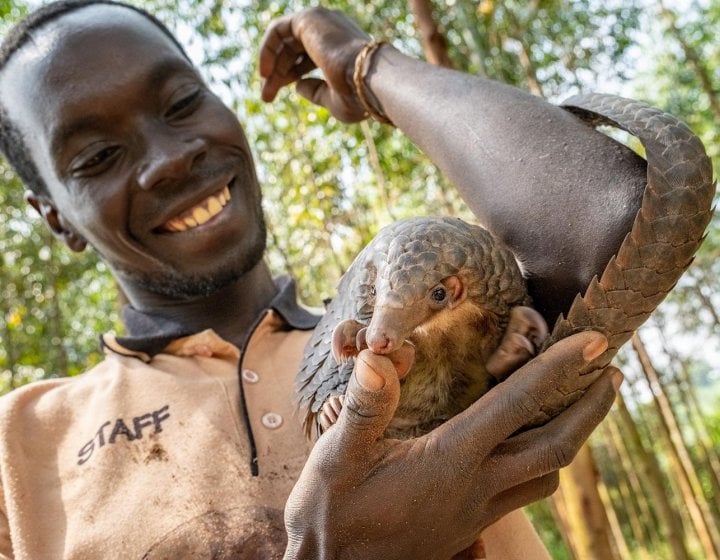
From the film, 'The Pangolin Man' by Ellie Stones
How conservation photography inspires change
03 March 2025
Today’s conservation photographers must be strong communicators as well as skilled image-makers.

Work by Holly Parsons
Redefining photography’s role in sustainability and social justice
24 February 2025
Discover the transformative potential of photography in driving positive change.
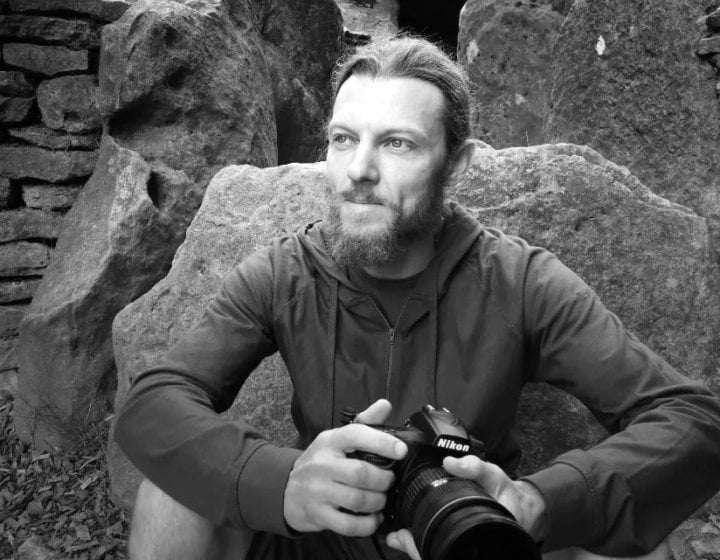
Dave Tipper on the lasting influence of an MA in Photography
19 February 2025
Photography graduate, Dave Tipper, reflects on how his studies have influenced both his photographic...

Bluff Rock, Ngoorabul Nation, 2024. Work by Glenn Porter
MA graduate’s photo series sheds light on Australia’s frontier wars
11 February 2025
Glenn Porter's Final Major Project has recently been published in an international criminology journ...

Photography graduate Niamh Shergold wins Portrait of Britain award
07 February 2025
Her winning image, ‘Maria & Connie’, is part of her final major project, ‘Lost & Found’.

Credit: Holly Parsons
Flexible, connected, and inspiring: Read what students think about studying Photography BA(Hons) (Online)
04 February 2025
We spoke to online Photography students to hear their thoughts on the course so far.

'Burning the Pain Away II' from the series 'White Picket Fence' by Emma Bennison
Student shines spotlight on women's healthcare through photography project
30 January 2025
Emma Bennison's project aims to highlight the challenges of living with endometriosis and PCOS.
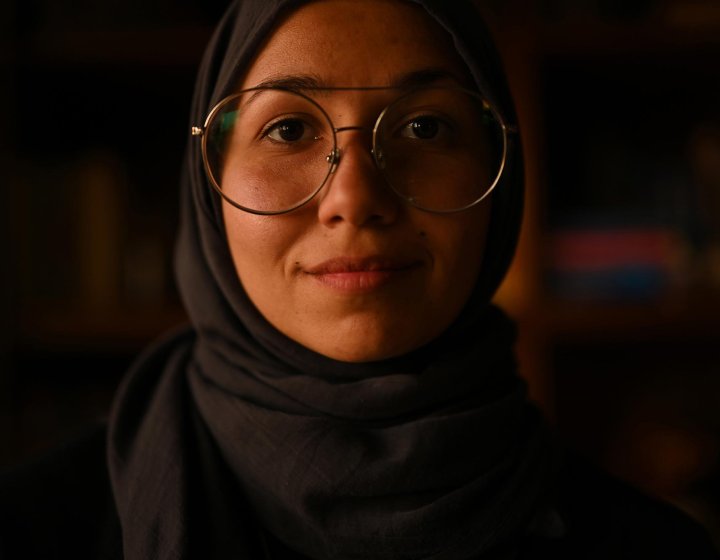
Rehab Eldalil on redefining representation in documentary photography
29 January 2025
Discover how Rehab’s journey at Falmouth helped shape her creative vision and propelled her remark...
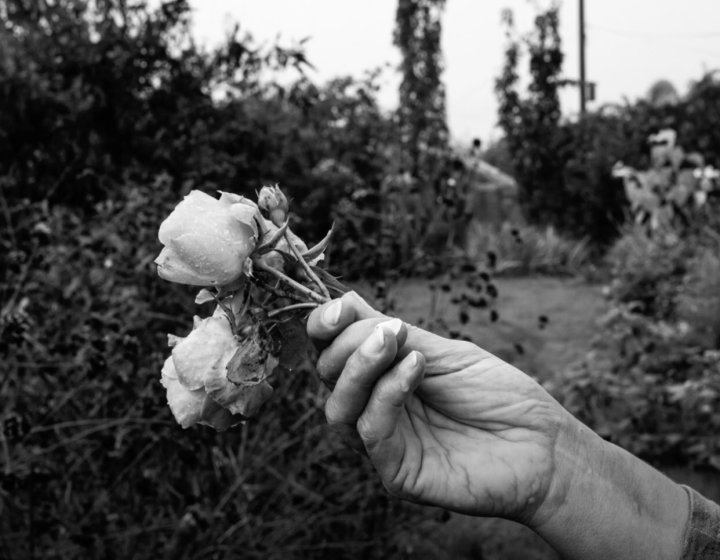
Capturing love and resilience: A Q&A with Photography student Matt Holloway
20 December 2024
Matt Holloway's deeply personal project, Meningioma, explores his mother’s diagnosis with a brain ...
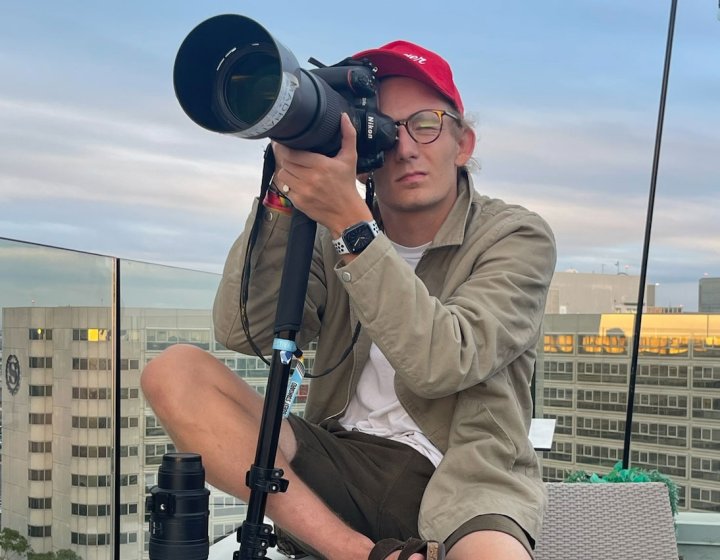
Photography student snaps Movember campaign for the Cornish Pirates
29 November 2024
Documentary & Editorial Photography BA student Benj Gilbert has been putting his camera skills to ex...

Paris Photo and beyond: Highlights from my Photography MA (Online) study trip
19 November 2024
Online Photography MA student, Bhaskar Sitholey, reflects on his recent study trip to Paris.
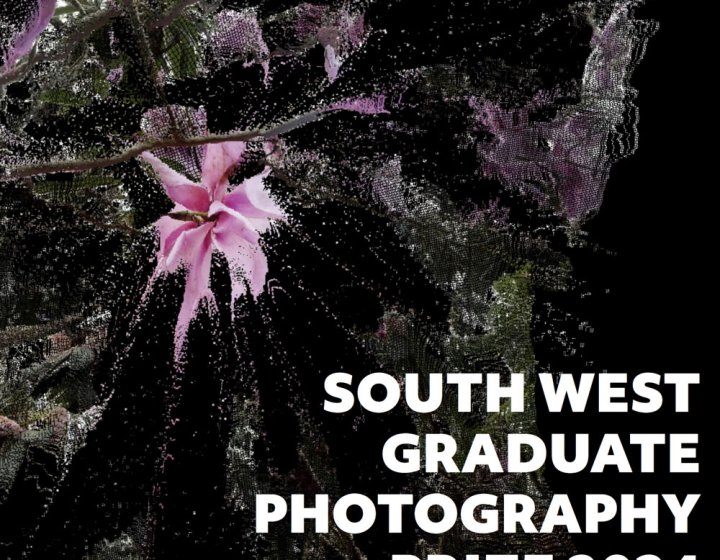
Falmouth alumni selected for the South West Graduate Photography Prize
08 November 2024
Four graduates from Falmouth's Institute of Photography have been selected to present their projec...
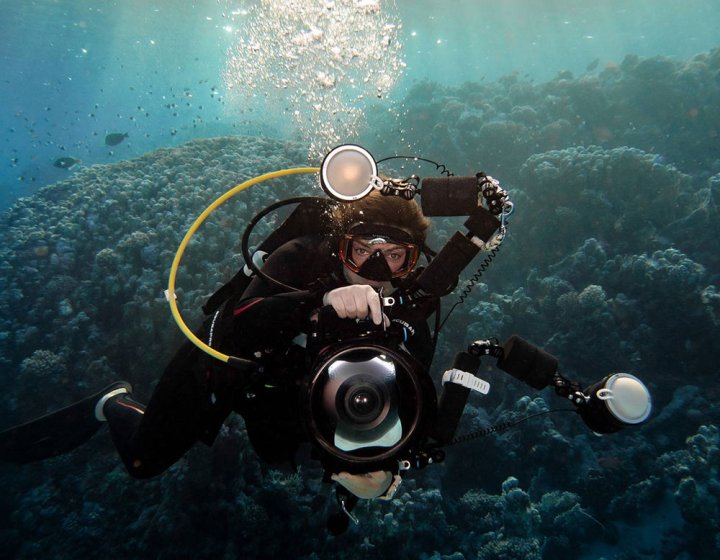
A year as Gina Goodman: Lecturer adds more awards to collection
24 October 2024
Marine & Natural History Photography BA lecturer Gina Goodman has followed up a stellar 2023 with a ...
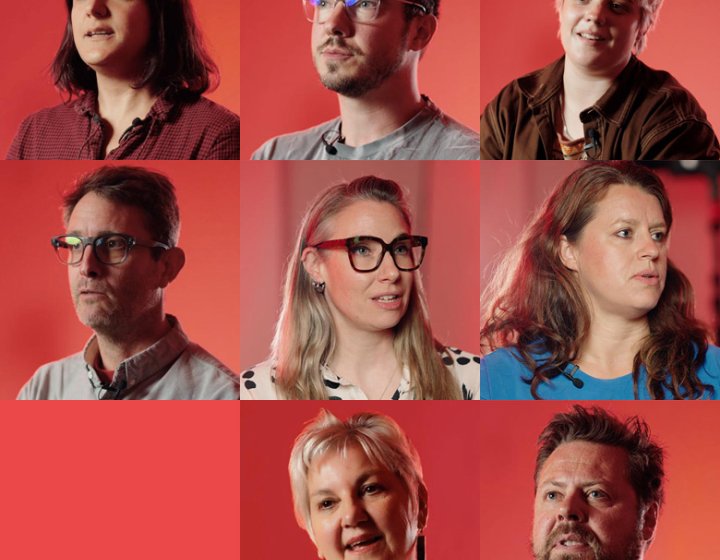
Meet Falmouth's Online Photography Community
18 October 2024
Hear directly from students and staff on how our online photography community empowers them to devel...
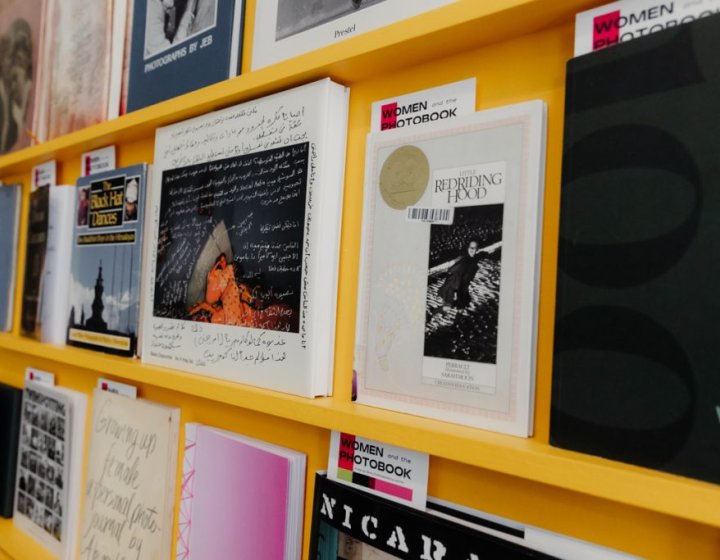
Photography graduates bring pop-up reading room to Bristol Photobook Festival
27 September 2024
Two graduates from Falmouth’s online master’s in Photography are hosting a reading room at this ...
Learning and support
How will I study online?
You'll learn through a blend of lectures, webinars, guest talks, tasks and discussion forums, which you'll access via our dedicated virtual learning environment. This is also where you'll find all key documentation, get course announcements and access extensive learning resources.
Based on the total learning time for the Postgraduate online courses, an average study week can be up to 25 hours. As our online courses are intended to be flexible, the time required to study will vary based on the level of study, the module week, and individual learning pace.
You'll have weekly contact with faculty staff, and will be supported academically by Online Tutors throughout each module. If you need assistance with anything that isn't directly related to course material, a dedicated Student Advisor team will be on hand to help. You'll also have access to Falmouth University's excellent Employability Service.
Assessment methods
All assessments are taken and submitted online.
Assessment methods for the master's degree in Photography can typically include:
- Coursework assessment with no formal examinations
- Oral presentations
- Collaborations on live, client briefs
- Projects, individual reports and public presentations
- Dedicated easy-to-use virtual learning environment (VLE)
- Accessible online audio / visual content
- A Student Advisor to support you throughout your studies and access to our Student Support Services
- Access to our Employability Service
- 24/7 access to Falmouth's extensive online library of contextual books, journals and resources
- Access to online software tutorials at LinkedIn Learning
- Students' Union community
- Optional in-person events
- Invitation to attend alumni events
Although online students don't have access to on-campus facilities as part of the course, you can hire equipment and access facilities by paying a charge. Find out more about availability and prices here.
Meet the team
Professional standards and practice are at the core of this online master’s course, which is delivered by a research-active academic team from the Institute of Photography at Falmouth University. There is a wide range of subject expertise within the team, and the ability to facilitate networking opportunities across the creative industries.
The course also benefits from the insight of photographers and other leading figures across the industry who contribute to our ongoing programme of Guest Lectures. Previous speakers include:
- Laia Abril
- Charlotte Cotton
- Geoff Dyer
- Julia Fullerton-Batten
- Nathan Jurgenson
- Kalpesh Lathigra
- Amak Mahmoodian
- Silvia Rosi
- Anastasia Samoylova
- Arpita Shah
- Vanessa Winship

Jesse Alexander
Course Leader, MA Photography (Online)
Jesse Alexander is a photographer, educator and writer on photography based in Somerset, England. Wh...

Dr Wendy McMurdo
Module leader, MA Photography
Wendy McMurdo is Module Leader for Final Project for the MA Photography at Falmouth. She is a widely...
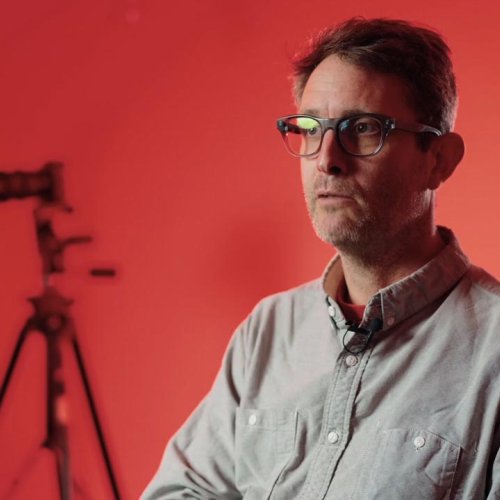
Meet your Course Leader, Jesse Alexander
We chatted to Course Leader Jesse Alexander about his rich industry experience, his dedication to online learning and his faith in the future of photography.
Read moreSome members of staff only teach on specific modules, and your course might not feature every staff member who teaches on the course.
Careers
There is no ‘typical’ route for career development as a photographer, but our graduates use the skills, network, and the portfolio they develop during the programme to advance their careers in various ways: winning awards, commissions, bursaries and residencies; gaining new commercial clients; and securing permanent roles as photographers within industry.
As a postgraduate course, most students will already be working with photography or media in some professional capacity and make use of the course to progress or diversify their careers in the photography industry. As an internationally recognised master’s degree, the award will make roles and careers outside of the creative industries accessible, too.
Whilst the course is designed with the career progression of its graduates in mind, the programme welcomes those who are taking the course primarily for personal development. Some graduates explore careers in academia and further study at doctoral level.
In addition to the guidance offered by our tutors, you can also access our careers and employability service throughout your studies, and for up to five years following graduation. Our expert team will help you identify potential opportunities in the UK or internationally, prepare for job interviews, advise you on starting up your own business, and more.

Meet graduate Rehab Eldalil
Discover how the Photography MA course helped shape Rehab Eldalil’s creative vision and launch her extraordinary career as an award-winning documentary photographer.
Read the interviewHow to apply
Speak to us about the course
If you'd like to talk to an Advisor about this course or your application, get in touch with us via the form below.
Apply now
Ready to apply for postgraduate study? We have three start dates a year: January / May / September. Select the start date you'd like to apply for in the drop-downs below and then click the relevant apply button to begin.
You can apply to begin your studies in May 2025 by selecting the relevant course route below:
You can apply to begin your studies in September 2025 by selecting the relevant course route below:
You can apply to begin your studies in January 2026 by selecting the relevant course route below:

How to apply for our Online Degrees
Find out moreQualifications
An honours degree or Level 6 equivalent qualification is desirable. However, candidates without a degree or formal qualification are still encouraged to apply. If you'd like to discuss our entry requirements, speak to an advisor.
Portfolio
A digital portfolio of your current photographic practice. The portfolio should indicate both your technical aptitude and the quality and sophistication of your practice.
You shouldn’t attempt to encompass a range of styles and genres of photography, but rather try to give the admissions team a sense of your practice specialisms and your interests as a practitioner.
You should title or briefly caption each image in your portfolio, explaining - if necessary - how the image is indicative of your practice and why you have selected it.
If you'd like to talk to us about your application, get in touch.
If English is not your first language you will need to meet the same standard which is equivalent to the IELTS Academic 6.5 overall score, with at least 5.5 in Reading, Writing, and Listening, and a minimum of 6.0 in speaking.
We also accept a range of other recognised English language qualifications. You can visit our English Language Requirements page for more information.
For more information about equivalent international qualifications or English language requirements please contact our friendly Course Advisors.
This course has three intakes per year: January, May and September.
| Academic start date* | Application deadline |
|---|---|
| 26 May 2025 | 6 May 2025 |
| 22 September 2025 | 1 September 2025 |
| 19 January 2026 | 9 January 2026 |
Please note:
*Virtual Welcome Week begins the week before the academic start date. During this time, our Student Advisor team will host Welcome Webinars and be in touch with practical information on how to study online.
An Early Bird discount is available for early applications. Currently the scheme offers up to £600 off MA tuition fees: £300 if you apply by the Early Bird discount submission deadline, and a further £300 off your tuition fees if you receive an offer and within two weeks you accept the place and pay the acceptance fee. Both these payments would be applied to your final fee instalment. Please note the discount amount is subject to change for future intakes.
| Early Bird discount submission deadline | Academic start date |
|---|---|
| 7 April 2025 | 26 May 2025 |
| 4 August 2025 | 22 September 2025 |
| 24 November 2025 | 19 January 2026 |
To discuss all our discount opportunities, contact an advisor.
Fees, costs & funding
Tuition fees
£12,150 total fee (incl. acceptance fee) - 2 years part time - MA/MSc course
£7,921 total fee (incl. acceptance fee) - PGDip course
£12,150 total fee (incl. acceptance fee) - 2 years part time - MA/MSc course
£7,921 total fee (incl. acceptance fee) - PGDip course
Tuition fees are set annually and are subject to review each year. The University may therefore raise tuition fees in the second or subsequent years of a course, in line with inflation and/or the maximum permitted by law or Government policy. Students will be notified of any changes as soon as possible.
The figures above don't include accommodation and living costs
Typical course costs
As part of studying MA Photography Online you will require:
Laptop/computer
You will need a laptop or computer with a webcam, microphone and speakers/headphones. You'll also need a good internet connection or a data allowance capable of supporting frequent video meetings and streaming.
Resources and materials
Although all assignments will be submitted digitally, you will need to manage your own resources and materials, reflecting your own style and practice.
This will depend on the technology, equipment and consumables that you use for your practice, or would like to experiment with. These will vary from student to student, but you should be prepared to be making practical work on a weekly basis throughout the course.
Photographic Equipment
There is no minimum technical requirement for the course: the camera and technologies that you use will entirely depend upon what is appropriate for your particular specialism, and what you have access to.
The majority of students work with digital SLR or mirrorless camera systems, although many work with film (in all formats) and camera-less technologies. The course encourages purchasing equipment second-hand, or borrowing where possible.
Workspace
We recommend, where possible, a dedicated workspace where you can complete coursework and participate in live meetings.
This does not need to be a dedicated, hired studio space; many students work from a quiet room in their homes, home offices or a communal workspace.
Adobe Creative Cloud
Depending on the mediums you choose to work in, you may require access to Adobe Creative Cloud. You may be eligible for discounted licenses through Adobe's education pricing and Falmouth University seeks to provide further discounts when possible. If any discounts are available, we will communicate these to you.
For more information please visit Adobe Creative Cloud.
Optional in-person events
You will be expected to cover your own travel, accommodation and subsistence costs to attend these events. Where ticketed activities are part of the event, such as festivals and fairs, you will also need to meet these costs.

Early Bird discount available
Request informationPostgraduate funding
There are loans, awards, graduate discounts and alternative funding sources for postgraduate studies. Read about them on our Postgraduate Funding page.
Find out about funding
Speak to an advisor
Do you have questions about the course or studying online with Falmouth? Fill in our simple online form and we'll get in touch to support your application journey.
Submit form








